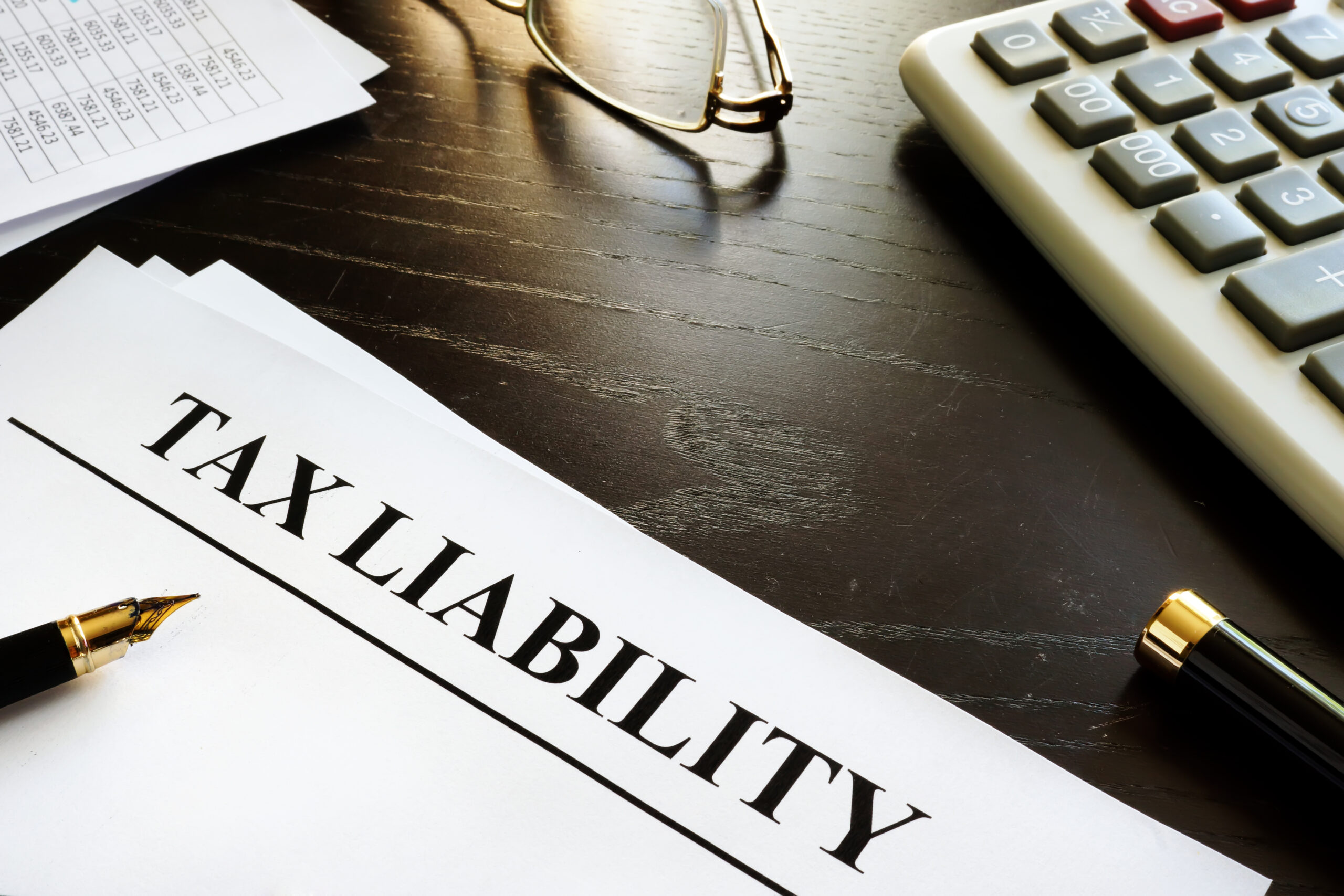How To Avoid Tax Liability When Selling Business Assets

Papers with title tax liability on a desk.
If you’re an entrepreneur or business owner, the time may come where you’ll need to sell one of your business’s assets. Such working resources might be a vehicle or even business equipment. And whether it’s to raise cash for a new venture or downsize, selling assets can be a complex process.

The Internal Revenue Service (IRS) imposes capital gains tax on the profit achieved from selling assets. As an entrepreneur, you must consider this tax in your asset sale planning. If not handled properly, it may become a financial burden for you and your business.
Fortunately, there are methods to minimize or avoid any tax liability associated with the sale of business assets. Here are some of the most common ways:
- Have An Asset Sale Plan
One of the simplest ways to avoid tax liability when selling assets is to have a careful plan in place before you ever sell. That means working with an accountant or other finance professional to map out your sale in advance. The goal is to make sure that you take all possible measures to minimize your tax burden.
The crucial part of this planning is to time your sale correctly. Selling assets in a year when you have a high income can subject you to a higher tax rate. On the other hand, a low-income year can reduce your tax burden and potentially even drop you into a lower tax bracket.
By creating an asset sale schedule in advance, you can plan accordingly and time your sales with the most advantageous tax periods. Additionally, when you’re just starting a business, it’s vital to start saving for taxes right away. Doing so requires discipline, but the benefits are well worth it.
- Invest In A Tax-Deferred Retirement Account
Another great way to avoid tax liability on the sale of business assets is to use your profits to make a tax-deductible contribution to an individual retirement account (IRA). This option works best if your retirement savings are not maxed out for the year already.
You’ll still have to pay taxes at some point on IRA contributions, but you’ll get an excellent reduction in the overall tax burden through this method. In addition, investing in your IRA might allow you to defer taxes on earnings from the sale of your assets for several years.

- Review Your Asset’s Depreciation Schedule
This method is another excellent approach to avoid tax liability. If you’re selling an asset that’s already fully depreciated, then you won’t have to pay any taxes on the sale of it.
Tax depreciation is a process that allows business owners to deduct the cost of an asset over a predetermined timeframe. By keeping up-to-date on your business’s depreciation schedule, you can sell assets with little to no tax liability.
Moreover, it’s important to remember the details of your asset sale, including who purchased it and how much you sold it for. These details will matter when filing your tax returns at the end of the year.
- Sell Assets At A Loss
If you’re looking to sell an asset at a loss for tax purposes, there are a couple of avenues open to you. The first is to sell the asset to a related party. This process could be another business entity that’s under your control, family, or even a relative. Selling to a related party can help you reduce or avoid capital gains taxes on the property.
The second avenue for selling at a loss is to sell the asset to an unrelated third party. This practice may be a little more challenging, as you’ll need to find a buyer who’s not associated with your business in any way. However, if you’re successful in selling at a loss in this manner, you can write off the difference on your tax return.
- Choose The Right Asset To Sell
Not all assets are created equal from a tax perspective. The IRS places different values on different types of business resources. In some cases, you may be able to choose the right asset to sell to have tax-exempt.
The IRS has guidelines in place that outline which assets are considered short-term assets and which ones are long-term assets when it comes time for your tax filing.
As a rule of thumb, the longer you hold on to an asset, the less likely it is to be considered a long-term capital gain. With this in mind, selling short-term assets can typically result in more tax liability than selling long-term ones.
Selling business assets doesn’t have to mean hefty tax bills. By carefully planning, executing, and choosing the right approach, you can minimize your tax liability and keep more money in your pocket.
Conclusion
When selling business assets, it’s crucial to comply with the IRS. That way, you can avoid penalties and retain your credibility with both the government and potential investors.
Generally speaking, entrepreneurs shall understand their tax liability when selling assets. And any entrepreneurs looking to minimize that tax burden would be wise to work closely with an accountant or other tax professional.






